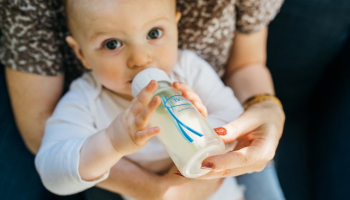
Mayonnaise is a popular condiment that is used in many dishes around the world. However, when it comes to feeding mayo to babies, parents may have concerns about its safety and nutritional value. In this article, we will explore whether babies can have mayo, and if so, what are the potential risks and health benefits therein.
Mayonnaise is a creamy sauce made from oil, egg yolks, vinegar or lemon juice, and seasonings. It is high in fat and calories, but also contains some nutrients such as vitamin E and omega-3 fatty acids. When it comes to feeding mayo to their babies and young children, parents should consider their child’s age, dietary needs, and any potential risks of food allergies or choking hazards.
Key Takeaways
- Mayonnaise is a popular condiment made from oil, egg yolks, vinegar or lemon juice, and seasonings.
- Feeding mayo to babies requires consideration of their age, dietary needs, and potential risks of food allergies or choking hazards.
- Safe mayo options for babies include homemade mayo, low-fat or reduced-fat mayo, and mayo substitutes such as avocado or hummus.
What is Mayonnaise?
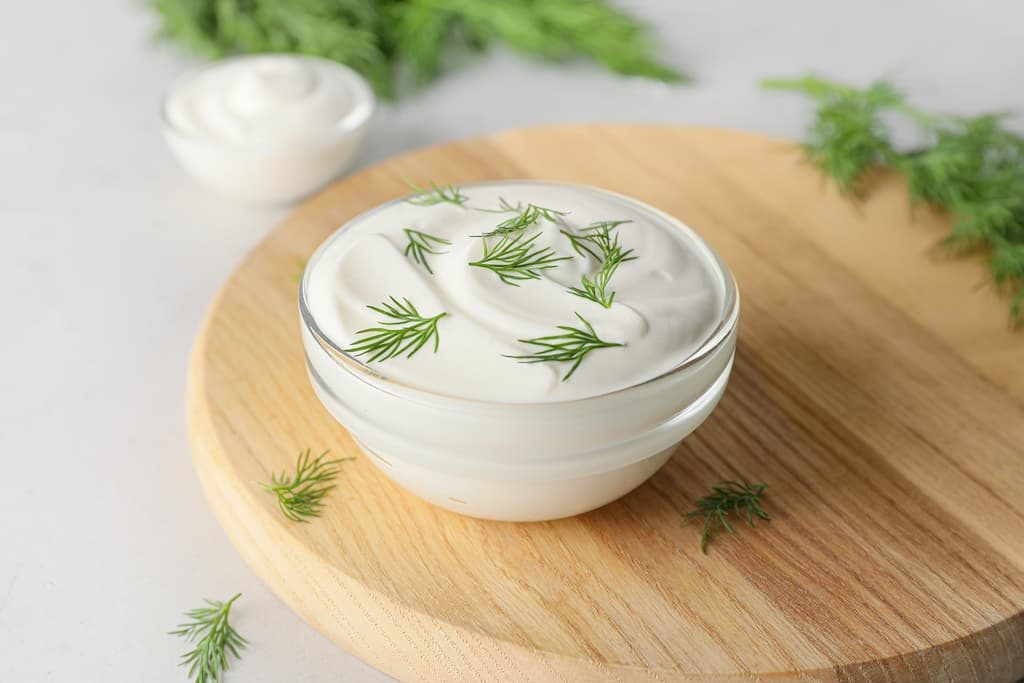
Mayonnaise is a thick and creamy condiment that is typically used as a spread or a dressing. It is made by combining oil, egg yolks, vinegar or lemon juice, and seasonings. The mixture is then whisked vigorously until it emulsifies, resulting in a smooth and creamy texture.
Mayonnaise is a versatile condiment that can be used in a variety of dishes, including sandwiches, salads, and dips. It is available in both homemade and store-bought varieties, with each having its own unique taste and texture.
The oil used in mayonnaise is typically a neutral-flavored oil such as vegetable or canola oil. The egg yolks act as an emulsifier, helping to bind the oil and vinegar or lemon juice together. Vinegar or lemon juice is added to give the mayonnaise its tangy flavor.
When it comes to babies, homemade mayonnaise recipes should be avoided as they often contain raw eggs, which can pose a risk of salmonella. Store-bought mayonnaise, on the other hand, is generally safe for babies to consume in moderation. However, it is important to check the label to ensure that there are no added ingredients that may not be suitable for babies.
Understanding Baby’s Diet
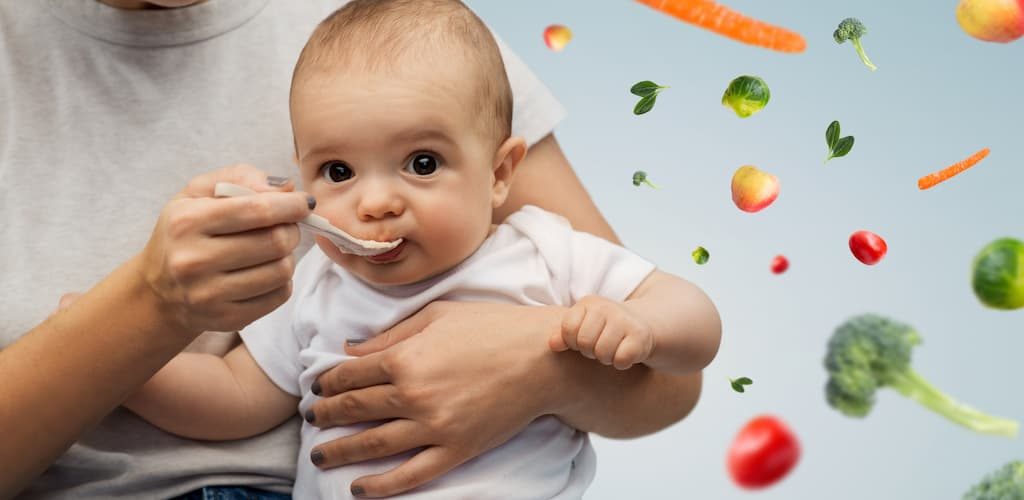
When it comes to feeding babies, it’s important to understand their unique dietary needs. Babies start with a diet of breast milk or formula, which provides all the necessary nutrients for their growth and development. As they grow older, they will begin to transition to solid foods, which can be introduced around 4-6 months of age.
The American Academy of Pediatrics recommends that babies be exclusively breastfed for the first six months of life, but formula can also be used if breastfeeding is not an option. After six months, babies can start eating solid foods in addition to breast milk or formula.
When introducing solid foods, it’s important to start with single-grain baby cereal, such as rice or barley, mixed with breast milk or formula. Soft fruits and vegetables can also be introduced, such as mashed bananas or pureed sweet potatoes. As babies get older and more comfortable with solid foods, they can start to try finger foods and pureed meats.
It’s important to note that babies should not be given water until they are at least six months old, as their kidneys are not yet mature enough to handle it. Additionally, it’s important to avoid giving babies honey, as it can cause botulism in infants.
When to Introduce Solids
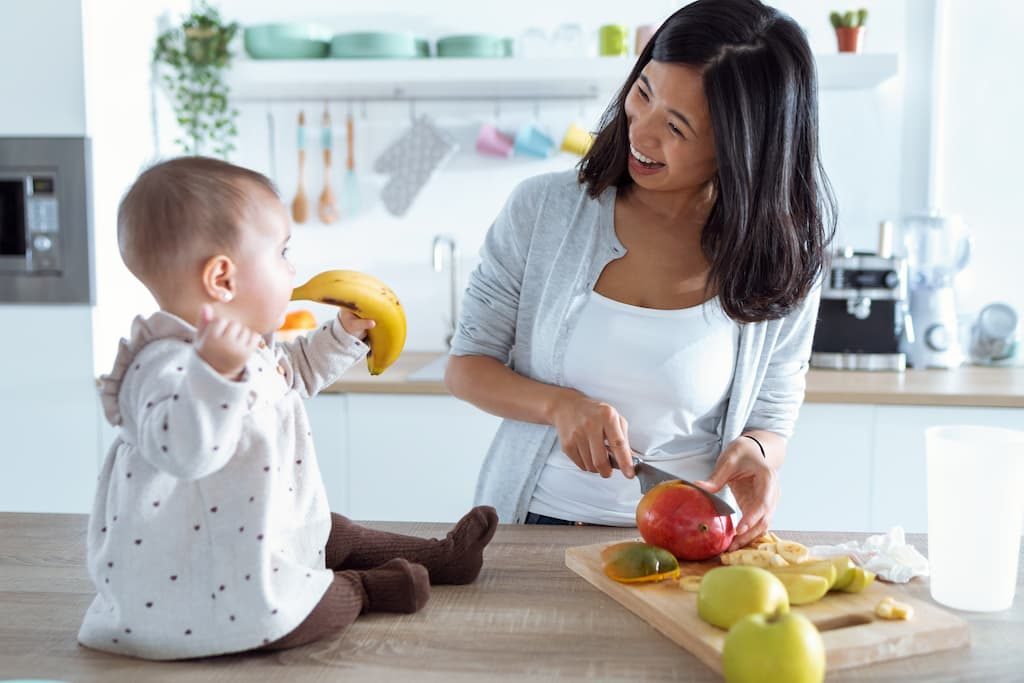
Introducing solid food to a baby is an exciting milestone in their development. However, it is important to wait until the baby is ready. The American Academy of Pediatrics recommends that babies should be exclusively breastfed or formula-fed for the first six months of their life. After six months, babies can start eating solid food while continuing to breastfeed or formula-feed.
When a baby is ready to start eating solid food, they will show signs of readiness. These signs include being able to hold their head up and sit upright with support, showing interest in food, and being able to communicate hunger by crying or making chewing motions.
Parents can choose between traditional weaning, where purees and spoon-feeding are introduced, and baby-led weaning, where babies are given soft finger foods to feed themselves. Both methods can be successful, and it is up to the parents to decide which method works best for their baby.
It is important to introduce one new food at a time and wait a few days before introducing another food. This helps to identify any potential allergies or digestive issues. Parents should also avoid giving babies foods that are high in salt, sugar, or fat.
Potential Risks of Mayo for Babies
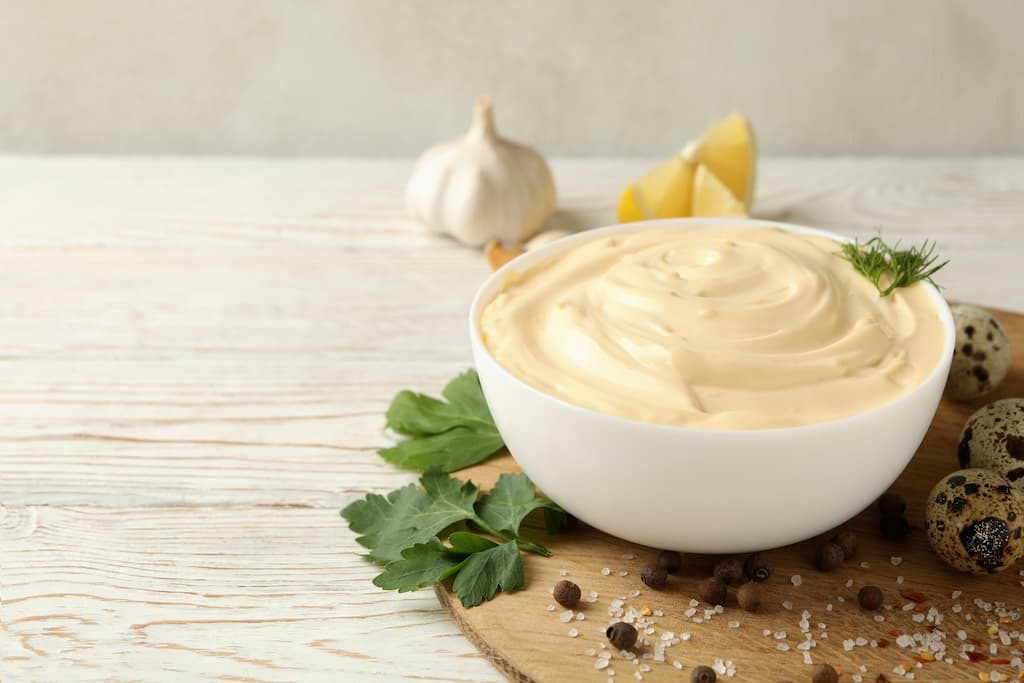
Mayonnaise is a popular condiment that is commonly used in sandwiches, salads, and dips. However, when it comes to babies, parents need to be cautious about feeding them mayo. Mayo can pose potential risks to babies, especially if it is homemade or contains raw eggs.
Raw eggs in mayonnaise can carry harmful bacteria such as Salmonella and E. coli, which can cause food poisoning. Babies have a weaker immune system than adults, making them more susceptible to these bacteria. Homemade mayonnaise is particularly risky as it may not be pasteurized, which is a process that kills harmful bacteria.
Another potential risk of mayo for babies is choking hazard. Mayo has a smooth texture that can easily stick to the baby’s throat, causing choking. Therefore, parents should avoid giving mayo to babies who are not yet able to chew solid foods properly.
Babies may also develop an allergic reaction to mayonnaise, especially if they have a food allergy. Symptoms of an allergic reaction may include rash, hives, vomiting, diarrhea, and difficulty breathing. Parents should watch for these symptoms and seek medical attention if they occur.
Nutritional Content and Considerations
Mayonnaise is a common condiment that is often used to add flavor to sandwiches, salads, and other dishes. While it is generally safe for babies to consume mayonnaise, there are some nutritional considerations that parents should be aware of.
Mayonnaise is typically made from oil, egg yolks, vinegar, and seasonings. It is a good source of healthy fats and contains some vitamins and minerals, including vitamin E, vitamin K, and choline. However, mayonnaise is also high in calories and fat, so it should be consumed in moderation.
Parents should also be mindful of the other ingredients that may be present in mayonnaise-based dishes. For example, tuna salad made with mayonnaise can be a good source of protein and omega-3 fatty acids, but it can also be high in sodium. Peanut butter and mayonnaise sandwiches may be a tasty treat, but they are also high in calories and fat.
When introducing mayonnaise to a baby’s diet, parents should also consider any potential food allergies. Mayonnaise contains eggs, which are a common allergen. Parents should also be cautious when introducing other potential allergens when babies eat mayonnaise, such as peanuts, tree nuts, and wheat.
Safe Mayo Options for Babies
Mayonnaise is a popular condiment that is used in many dishes. However, when it comes to feeding babies, parents often wonder if it is safe to give them mayonnaise. The good news is that there are safe mayo options for babies.
When choosing mayonnaise for babies, it is important to look for products that contain pasteurized eggs or egg yolks. Pasteurization is a process that kills harmful bacteria and viruses, making the product safe for consumption. Parents should also check the label of the mayonnaise to make sure that it is fully cooked.
Store-bought mayonnaise is generally safe for babies as long as it meets the above criteria. However, homemade mayonnaise should be avoided as it may contain raw eggs, which can be harmful to babies.
In addition to traditional mayonnaise, there are also alternative mayo options that are safe for babies. These include avocado mayo, coconut oil mayo, and yogurt mayo. These options are free from harmful additives and provide a healthy alternative to traditional mayonnaise.
Alternatives to Mayonnaise for Babies
While mayonnaise is a common condiment used in many dishes, it may not be suitable for babies due to its high fat and sodium content. Fortunately, there are several alternatives that can be used in place of mayonnaise when preparing food for babies.
One alternative to mayonnaise is mashed avocado. Avocado is a nutrient-dense food that is rich in healthy fats, fiber, and vitamins. It has a creamy texture that is similar to mayonnaise, making it a great substitute in sandwiches, wraps, and dips. Mashed avocado can also be mixed with other pureed fruits and vegetables to create a variety of flavor combinations.
Another alternative to mayonnaise is hummus. Hummus is a dip made from chickpeas, tahini, olive oil, lemon juice, and garlic. It is a good source of protein, fiber, and healthy fats, making it a nutritious option for babies. Hummus can be used as a spread on sandwiches or as a dip for vegetables or crackers.
Breast milk or formula can also be used as a substitute for mayonnaise in some recipes. Breast milk or formula can be used to thin out pureed fruits and vegetables, making them easier for babies to eat. They can also be used to moisten bread or crackers or as a base for dips and dressings.
Feeding Mayo to Your Baby
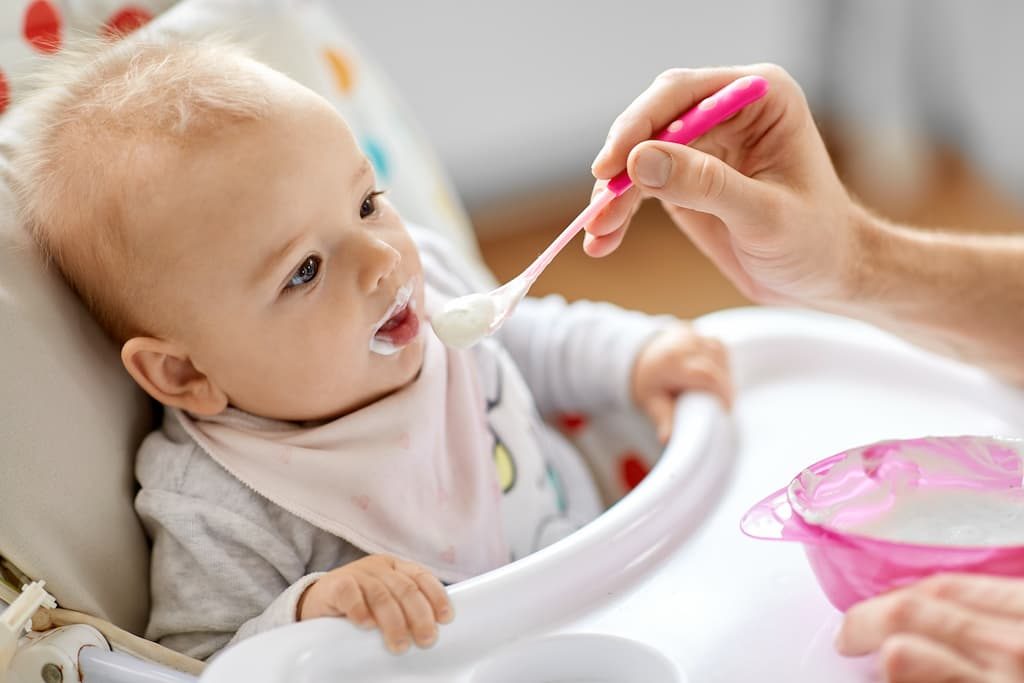
Mayonnaise is a popular condiment that many people enjoy. However, when it comes to feeding mayo to your baby, there are a few things that parents should keep in mind.
Firstly, mayo is generally safe for babies to eat in small amounts. However, it is important to note that mayo is high in fat and calories, so parents should be mindful of how much they are giving their baby.
When introducing mayo to your baby, it is important to pay attention to their taste preferences and texture sensitivities. Some babies may not enjoy the taste of mayo, while others may find the texture too thick or slimy. Parents can experiment with different amounts of mayo and mixing it with other foods to find a combination that their baby enjoys.
When feeding mayo to your baby, it is recommended to use a small spoon or utensil to avoid overfeeding. Parents should also avoid giving their baby large amounts of mayo, as this can lead to digestive issues.
In terms of parenting tips, parents should always supervise their baby when they are eating and be aware of any signs of allergic reactions. It is also important to introduce young children to new foods one at a time, so that parents can identify any potential food allergies or sensitivities.
Consulting Healthcare Professionals

When it comes to introducing new foods to babies, it’s always a good idea to consult with a healthcare professional. A pediatrician can provide guidance on what foods are appropriate for a baby’s age and development. They can also offer advice on how to introduce new foods and monitor for any potential allergic reactions.
The Mayo Clinic is a trusted source of health information for parents and caregivers. They recommend waiting until a baby is at least 6 months old before introducing solid foods, including mayonnaise. They also suggest starting with small amounts of a new food and watching for any adverse reactions.
The American Academy of Pediatrics recommends introducing new foods one at a time, waiting a few days in between each new food. This can help identify any potential food allergies or sensitivities. They also suggest avoiding added sugars and salt in a baby’s diet.
It’s important to note that while mayonnaise is generally safe for babies over 6 months old, it is high in fat and calories. It should be used in moderation and not as a regular part of a baby’s diet.
Frequently Asked Questions
At what age can babies safely consume mayonnaise?
Babies can start consuming mayonnaise around 6-8 months old, as long as they do not have any egg or soy allergy. However, it is always best to consult with a pediatrician before introducing any new food to a baby’s diet.
Is it safe to give babies egg mayo sandwich?
Egg mayo sandwich can be given to babies as long as the egg is cooked thoroughly and the mayonnaise is made from pasteurized eggs. It is important to avoid giving raw or undercooked eggs to babies as they may contain harmful bacteria.
What are some foods that should not be given to babies under 1?
Babies under 1 year old should avoid foods that are choking hazards, such as whole nuts, popcorn, and hard candies. They should also avoid raw eggs and honey, which may contain botulism spores, and unpasteurized dairy products, which may contain harmful bacteria.
When can babies eat unpasteurized cheese?
Babies should not consume unpasteurized cheese until they are over 12 months old. Unpasteurized cheese may contain harmful bacteria that can cause serious illness in babies.
Can babies eat tuna mayonnaise?
Tuna mayonnaise can be given to babies as long as the tuna is fully cooked and the mayonnaise is made from pasteurized eggs. However, it is important to limit the amount of canned tuna being given to babies due to its high mercury content.
Can Hellmans mayo be given to 8 month old babies?
Hellmans mayo can be given to 8 month old babies as long as it is made from pasteurized eggs. It is important to always read the label and check the ingredients before giving any food to a baby.



